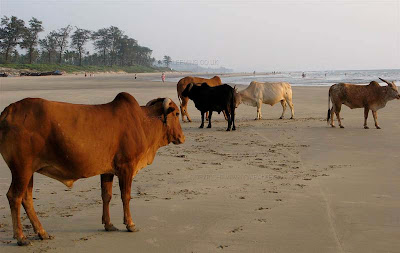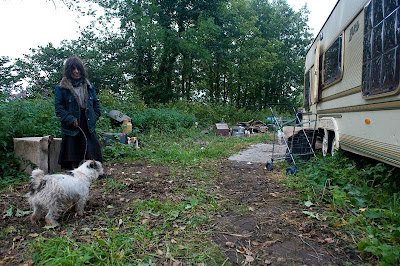It’s funny how things turn out. I now spend so much time thinking about and looking at photography – and multimedia – that I wonder what I filled my mind with before this obsession took hold.
I’ve been working full-time as a journalist since 2004, and for two years before that was writing freelance while still at uni. This was no lifelong ambition – rather something I turned to in a panic after realising on a year abroad that I made a god-awful teacher (my back-up plan). So I went and did an NCTJ course in Preston, inexplicably getting sponsored through it by the Manchester Evening News.
Looking back, I see both ignorance and arrogance. I’ve always been a good writer so assumed I would therefore make a good reporter. My first year on a newspaper was a very steep learning curve. I clearly remember being hit a few months in by the sudden realisation this job’s about so much more than writing – or in photography’s case, technique.
At this point, my mind was completely closed to photography. I hadn’t even owned a camera. And despite working with – and being friends with – snappers since I started freelancing, I rarely showed much interest in what they were doing. I’d backpacked around Australia and Brazil and lived twice in France without even carrying a camera….it seems incomprehensible to me now.
In 2006 I was made redundant and, not being in a position to make the move to London – essential if you want to really succeed in my industry – decided to chance it and go freelance. I started covering social issue subjects such as regeneration, homelessness and asylum….I’d say my subjects tend to be people who are under- or mis-represented by the mainstream media.
Since then I’ve worked with the Guardian, the Independent, the Express, BBC, Action Aid, New Start, Inside Housing and others. I work closely with the Big Issue in the North and regularly stand in as editor. Eighty per cent of my work is uncommissioned and involves me working up stories and selling them. Nevertheless, I still feel like a fraud who could get caught out anytime – and I suspect I always will.
It wasn’t until late 2007 that the photography bug bit. I spent that November travelling in India and ended up hogging my other half’s camera (Canon G7 as it happens). Something clicked (no pun intended) and I started thinking about buying a DSLR. I was encouraged on my return by a close photographer friend who told me I had a good eye.
It’s gone from there really. I’m a technical dunce so signed up to a City and Guilds course in a local college to force me to experiment with using the camera manually. I joined Flickr – leaving later as my focus shifted and the site began to bug me – and made some friends through that whose encouragement helped me move forward.
From here it was a natural progression to move towards a more journalistic type of photography. Work trips to India and the West Bank in 2008 gave me opportunities to use my camera and I quickly found I was becoming more interested in the photography than the words. Having said that, I am now so engaged in some of my stories that I’d find it difficult to let go and share them with a collaborator.
Last March I took a workshop with Ed Kashi, five intense days which gave me the kick I needed to start working on some projects. It also opened my eyes to the possibilities of multimedia and got me thinking seriously about whether or not I should return to education or just spend the equivalent sum on a personal project or two. After a lot of consideration I decided I’d probably benefit more from a structured learning environment. The few local options didn’t appeal but I managed to get a place on the online MA photojournalism at the London College of Communication.
Over the past six months my practice has shifted once again. Where I used to take my interviews in shorthand, I’m now increasingly taking audio, which I transcribe for written stories (the downside being that it’s time consuming) but which opens up uses away from the printed page. A multimedia workshop with the brilliant duckrabbit got me competent at taking and editing audio. With their help and encouragement I’ve made three little multimedia pieces so far, two of which I sold to the BBC website (I didn’t try with anyone with the third). They can be viewed over here. Taking and integrating little bits of video will be the next logical step for me, but money – as always – is the stumbling block.
Photographically, three loose themes have emerged over the past year. Gypsy and Traveller rights are a big interest:
I’ve started looking at the UK asylum system and have spent a lot of time with Sofia, a destitute Zimbabwean asylum seeker (multimedia piece here.) I hope to expand this by working with others in different situations.
And I’m currently photographing and interviewing people whose lives have been affected by publicly funded regeneration schemes (below). What I’ll ultimately do with this material I don’t know, but I have almost 25 so far. I just believe this is a worthwhile record.
What I hope to gain from this course is a better understanding of how to create compelling visual narratives, while tightening up the way I use each frame. I also hope to get a better feel for ways to market my work – something I’m incredibly weak at. I’m also at the stage where I think some honest critique and guidance from those who’ve done it will help me get to the next level. I’m inspired by forward-looking photographers who really advocate for their subjects – the likes of Kashi and Joseph Rodriquez.
When I take a step back and consider my thinking in the short time I’ve been taking pictures, I can’t help but draw a parallel with when I first became a local paper reporter. It was my ability to write well that threw me into it but after a while I realised that actually, it’s all about the story. The fact I have good people skills and an eye for a story (although sadly not for the popular/profitable ones) is what has helped me survive in the job.
Similarly, what pulled me into photography was the creative aspect – something that is sorely lacking from newspaper reporting. I realised I could make strong visual pictures but after a while that wasn’t really enough. Now, for me, photography’s become a tool for communication. If it’s visually engaging, all the better, but for me it’s got to be in service to a story.





Comments are closed.